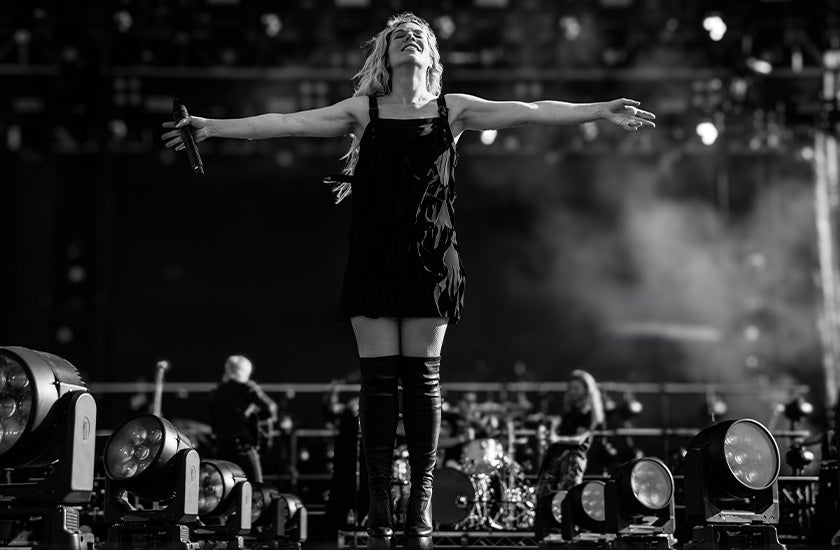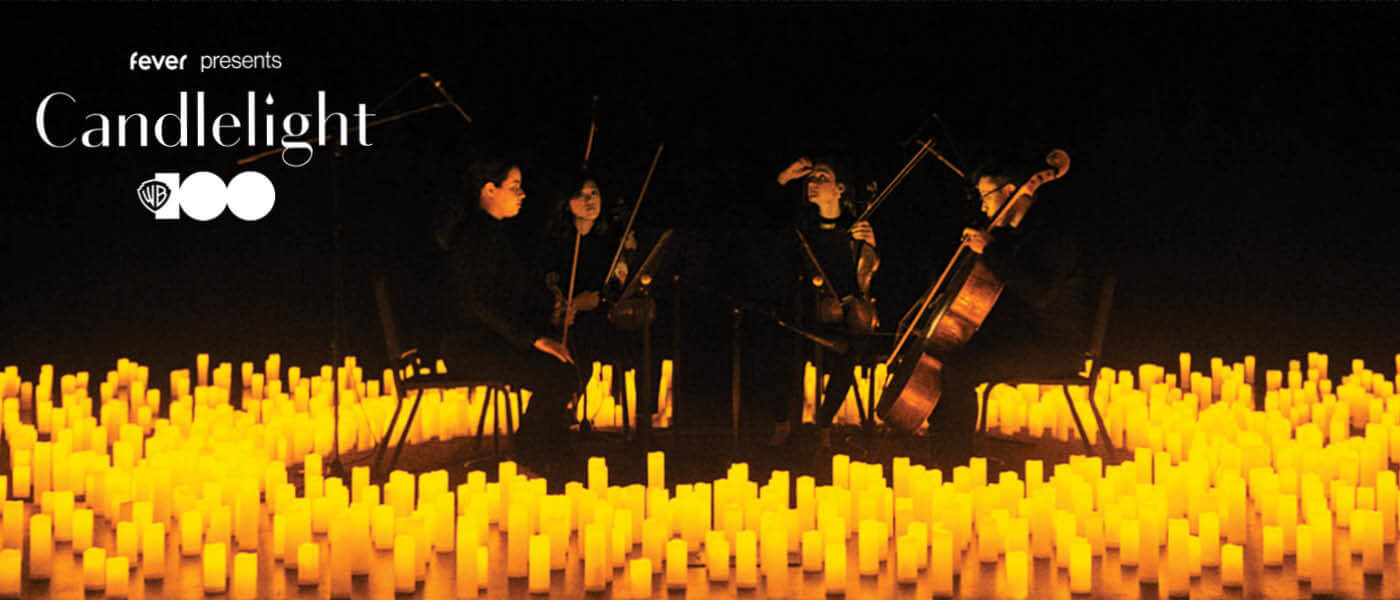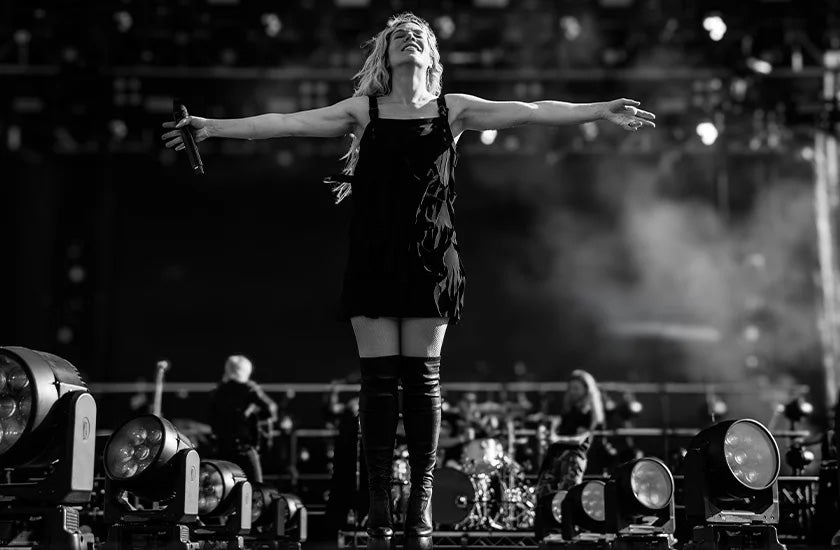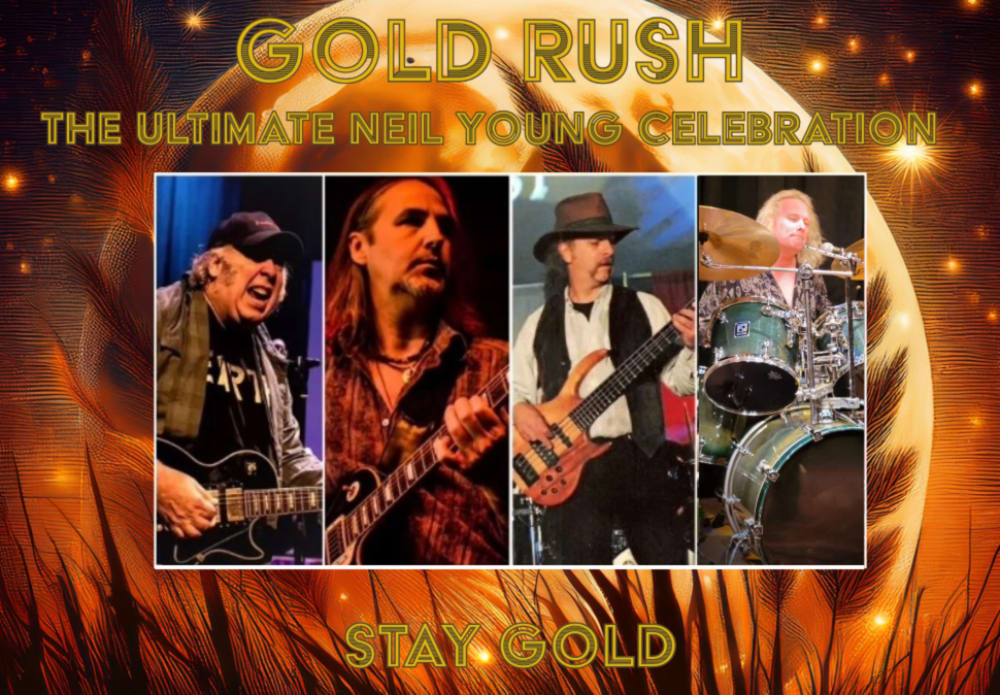That's it for this week! Please continue to support live and original music and until next week....ROCK ON!
This week's event listings
Allentown BoroughMain Street Allentown
Thurs. 11:45 a.m. Kids! Family Storytime (Takes place at the library located at 16 South Main Street)
Al's Airport Inn636 Bear Tavern Road West Trenton
(609) 883-5252
Thurs. 5 p.m. Diane Chiorello
Sat. (12 p.m.) Acoustic Brunch w/ Jerry Monk (5 p.m.) Ed Wall
Sun. 12 p.m. Sunday Brunch
Mon. 5 p.m. Joe Hutchinson
Tues. 7 p.m. Mike & Laura
Wed. 7 p.m. John & Ty
Aristaeus Brewing2475C Big Oak Road Langhorne, PA
(215) 757-2337
Thurs. 7 p.m. Trivia
Arts Council of Princeton 102 Witherspoon Street Princeton
(609) 924-8777
Sat. (3 p.m.) Gallery Opening of Waiting to Detonate: Andrew Chalfen, Katelyn Liepins, Ida Ochoteco. (4 p.m.) Fiesta del Dia de Los Reyes Magos: A Three Kings Day Flamenco Celebration
Ashlynn Distillery 32 West Bridge Street Morrisville, PA
Thurs. 5 p.m. Cecil & Carl
Fri. 6 p.m. SoulShine
Sat. 7 p.m. Drum & Tantrum
Sun. 3 p.m. Dueling Pianos
Wed. 6 p.m. Cara Cartney
Bill's Olde Tavern2694 Nottingham Way Hamilton
(609) 586-0192
Mon. 7 p.m. Trivia
Tues. 8 p.m. / Wed. 8 p.m. Karaoke w/ DJ Burn
Ages 21+
Bordentown CityFarnsworth Avenue Bordentown
Fri. 7 p.m. "Frightening Fridays!" Haunted History Tours. $20
Sat. 12 p.m. Bordentown Walking Tours. $20
Bowman's Tavern 1600 River Road New Hope, PA
(215) 862-2972
Fri. (5:30 p.m.) Bennett Lee (8 p.m.) Bob Egan
Sun. (12 p.m.) Bill Avayou (6 p.m.) Lorenzo
Wed. 6 p.m. Liz DuFour
Broken Goblet Brewing2500 State Road Bensalem, PA
(267) 812-5653
Thurs. 7 p.m. Mike Estabrook
Sat. 1 p.m. School of Rock Princeton
Bucks On Bridge25 Bridge Street Lambertville
(609) 483-2615
Fri. 6:30 p.m. Poetry Night
Sun. 3 p.m. Songwriter's Showcase Hosted by JB Kline feat. Songbird, Underlined Passages, Charybdis, Renee Maskin, Loose Panic Slow Noche. $10
Tues. 5 p.m. Chess Night
Wed. 6 p.m. Trivia
Candlelight Lounge 24 Passaic Street Trenton
(609) 695-9612
Thurs. 6 p.m. Thursday Night Blues Jam. $5
Sat. 3 p.m. Rob Henderson HFactor. $20
Catch A Rising Star (Hyatt Regency Princeton)
102 Carnagie Center Princeton
(781) 568-1471
Sat. 7:30 p.m. Sean Morton. $26.50, Doors open at 7 p.m.
Cazz's Sports Bar 'N' Grille1560 Haines Road Levittown, PA
(267) 580-5469
Fri. 9:30 p.m. Karaoke w/ Paul
Cherry Valley Country Club125 Country Club Drive Skillman
(609) 466-4244
Fri. 6 p.m. Radio Fiction Duo
Club Atlantis1858 Street Road Bensalem, PA
(215) 944-1777
Sat. 9 p.m. DJ Robbie Tronco
All Events Ages 21+ and Dress to Impress
Clubhouse at Mountain View (The Patio)
850 Bear Tavern Road Ewing
(609) 538-0808
Thurs. 7 p.m. Karaoke
Fri. 6:30 p.m. Joe Zook & Billy Holt
Cooper's Riverview 50 Riverview Plaza Trenton
(609) 393-7300
Thurs. (7 p.m.) Cosmic Jerry Band (10 p.m.) Club Night feat. Rotating DJs
Fri. 5 p.m. Happy Hour (7 p.m.) No Way Out / DJ Jonny Rossi
Sun. (10 a.m.) Sunday "Jazz" Brunch w/ Victor Tarassov. $22.95 (Includes 2 Mimosas) $34.95 (Adults, kids ages 6-12 $14.95, kids under age 5 FREE)
Wed. (7 p.m.) Blues and BBQ Jam (8 p.m.) Wednesday Night Fever Hustle Dance Party
Crossing Vineyard and Winery1853 Wrightstown Road Washington Crossing, PA
(215) 493-6500
Sat. 2 p.m. Jim Nelsen
Sun. 2 p.m. Kim & Chuck Duo
Curran’s Irish Inn1909 Bristol Pike Bensalem, PA
(215) 245-1800
Thurs. 7 p.m. Music Bingo
Mon. 7:30 p.m. Quizzo
Dacey's Pub 215 West Philadelphia Avenue Morrisville, PA
(215) 295-4838
Fri. 6:30 p.m. Acoustic Music Night
Wed. 8 p.m. Quizzo
Dadz Bar and Grill 744 Main Street Lumberton
(609)267-4344
Thurs. 7 p.m. Open Mic w/ Jimmy Mannix
Fri. 8 p.m. Rob McMahon
Tues. 7 p.m. Open Mic Hosted by Linda
Wed. 7 p.m. Loose Bandits
Dharma Bums 4935 River Road New Hope, PA
(215) 663-2867
Thurs. 8 p.m. John Thomas
Fri. 8 p.m. Dtown Outliers. $10 (advance)
Sat. 8 p.m. Bob Stirner & Friends. $15 (advance)
Wed. 7 p.m. DBums' Hootenanny and Open Mic of Music Poetry and Spoken Word Hosted by Michael Henry Robert
Eddington House Bensalem2813 Hulmeville Road, Bensalem, PA
(215) 639-1220
Fri. 8:30 p.m. Stage Left
Sat. 8:30 p.m. Supertrain
Mon. 5:30 p.m. "Family Fun Night" w/ Amazing Balloon Creations by Kelsi-Joe
Escape Resort, Restaurant & Bar 120 Pheasant Run Road Newtown, PA
Tues. 6 p.m. Karaoke
Flying Pig Tavern & Tap 167 US-Route 130 North Bordentown
(609) 899-7447
Sat. 9 p.m. 44 Fridays
Tues. 9 p.m. Karaoke
Wed. 8 p.m. Trivia
Forsgate Country Club 375 Forsgate Drive Monroe
(732) 521-0700
Thurs. 5 p.m. Book Club
Fri. 5:30 p.m. "First Friday" w/ NRG Acoustic Duo
Tues. 6 p.m. Music Bingo
Founding Father's Sports Bar & Grill 2900 Street Road Bensalem, PA
(215) 923-1100
Fri. 6 p.m. Bob Pantano Dance Party w/ DJ Joe Castro
Friendly's 1031 Washington Boulevard Robbinsville
(609) 426-9203
Wed. 6 p.m. Open Mic Night Hosted by Kevin McGowan and/or Gino Formaroli (Sign-ups begin at 5:30 p.m.)
Gleason's Bar6700 Mill Creek Road Levittown, PA
(215) 943-4781
Thurs. 7 p.m. Music Bingo / “Ladies Night” Hosted by Best Choice Productions
Fri. (6 p.m.) "Happy Hour" (8 p.m.) The Last Three & Me
Tues. 6:30 p.m. Trivia Night Hosted by Best Choice Productions
Grover's Mill Coffee House Princeton-Hightstown Road Princeton Junction
(609) 716-8771
Thurs. 6 p.m. Open Mic Hosted by Wade Prestridge
Halo Pub4617 Nottingham Way Hamilton Square
(609) 586-1811
Sat. 7 p.m. Carmen Marranco
Hamilton Tap & Grill557 US Route 130 North Hamilton
(609) 905-0925
Thurs. 6:30 p.m. Music Bingo w/ DJ Nebbs
Sat. 8 p.m. Karaoke
Wed. 7 p.m. Trivia
Havana New Hope105 S. Main Street New Hope, PA.
(215) 862-9897
Thurs. 7 p.m. Funk & Blues Jam Hosted by The Slidewinder Blues Band
Fri. 9:30 p.m. DJ Dance Party w/ Iron Mike
Sat. 9:30 p.m. DJ Dance Party w/ Iron Mike
Sun. (1 p.m.) Midnight Sun Orchestra (6:30 p.m.) JB Kline Band
Mon. 9 p.m. Karaoke w/ Dwayne
Tues. 7 p.m. Jillian Ashcroft Jazz Quartet
Wed. 7 p.m. Jumper Duo
Hopewell Valley Vineyards46 Yard Avenue Pennington
(609) 737-4465
Fri. 4 p.m. "Music & Merlot" feat. (5 p.m.) Chris of Midnight Masqueraders
Sat. 5 p.m. "Music & Merlot" feat. Living The Dream
Sun. 2:30 p.m. Jon Zayle
Hurricane Jacks Bar and Grill7759 New Falls Road Levittown, PA
(267) 914-4517
Thurs. 7:30 p.m. Music Bingo w/ DJ John W.
Sat. 9 p.m. Jeds Gold
Mon. 7 p.m. Motown Mondays w/ rotating DJs BeeNice, Rawskillz, JusGroove
Tues. 8 p.m. Acoustic Tuesday
Wed. 7 p.m. Open Mic w/ Laura Fiocco
Il Portico Restorante Italiano 273 West Route 130 South Burlington
(609) 239-1000
Thurs. 7 p.m. Jazz Night
Fri. / Sat. 7 p.m. Live Music w/ Tony O
Irish Rover Station House 1033 South Bellevue Avenue Langhorne, PA
(215) 970-5412
Wed. 7 p.m. Quizzo Night
Iron Plow Vineyards26750 Mount Pleasant Road Columbus
(732) 306-9111
Fri. 6:30 p.m. Melisa Ann
Sat. 6:30 p.m. John Rossi
Sun. 2 p.m. AudioPilot
Iron Plow Vineyards Tasting Room61 High Street Mt. Holly
(732) 306-9111
Sat. 6:30 p.m. Double G Acoustic Duo
John & Peter's96 S. Main Street New Hope, Pa
(215) 862-5981
Sat. 9 p.m. Black Cat Habitat, The Jettys.
Mon. 9 p.m. Open Mic Comedy Night w/ Mike Dialto feat. (Sign-ups start at 8 p.m.)
Wed. 9 p.m. The Invitational
All shows 21+
Killarney's Publick House1644 Whitehorse-Mercerville Road Hamilton
(609) 586-1166
Thurs. 5:30 p.m. Radio Fiction
Fri. 10 p.m. DJ BayNice
Sat. (10 a.m.) Brunch (5:30 p.m.) Mark Sacco (10 p.m.) DJ Jimmy G
Sun. 10 a.m. "Sunday Funday" Brunch
Mon. 5 p.m. Kid's Night
Wed. 8 p.m. Trivia
La Cena Ristorante2233 Galloway Road Bensalem, PA
(215) 639-9969
Wed. 6 p.m. Joe Plush & Friends
Library Company of Burlington23 West Union Street Burlington
(609) 3861273
Fri. 6:30 p.m. Open Mic Night
Life Central Hair Studio728 Estates Boulevard Hamilton
(609) 586-8886
Wed. 7 p.m. Messages From Spirit w/ Nicole Angel. (Reservations Required)
Lillipies Bakery30 North Harrison Street Princeton
(609) 423-2100
Sat. 10 a.m. Storytime with Jeff
Logan Inn 10 West Ferry Street New Hope, PA
(215) 862-2300
Sun. 11:30 a.m. Aaron Quarterman
Magikava87a South Main Street New Hope, PA
(215) 862-2739
Thurs. 6 p.m. Astrology Readings by Riss Cottrill
Mon. 6 p.m. Magik "Art Mondays"
Wed. 6:30 p.m. Open Mic Night
McStews Irish Sports Pub5316 New Falls Road Levittown, PA
(215) 949-9570
Sat. 9 p.m. The Groove Dudes
Tues. 7:30 p.m. Trivia Night
Millhill Basement 300 S. Broad Street Trenton
(609) 989-1600
Fri. 10 p.m. "Punk Night" feat. Vicious Cycle, Indeyevid, Disoviet. $10, doors open at 9 p.m., ages 21+
Wed. 9:30 p.m. All Acoustic Night feat. Jimmy-N-Johnny, Space Jaim, Mikeys Machine, Dim.
Naked Brewing Company 212 Mill Street Bristol, PA
(267) 544-7129
Thurs.6:30 p.m. Dana Collins Project
Fri. 8 p.m. Karaoke
Sat. 7 p.m. Joe & Krista
Sun. 11 a.m. Weekend Brunch
Tues. 7 p.m. Trivia
New Egypt Flea Market Village 933 Monmouth County Road Cream Ridge
(609) 758-2082
Sun. 8 a.m. Flea Market
Wed. 8 a.m. Flea Market
New Hope Winery / Tavern 6123 Lower York Road New Hope, PA
(215) 794-2331
Fri. 5 p.m. Just Jeff
Newtown Brewing Company103 Penns Trail Newtown, PA
(215) 944-8609
Thurs. 7:30 p.m. Trivia
Fri. 6 p.m. Aaron Quarterman
Sat. 6 p.m. Two For Flinching
Wed. 4 p.m. Open Mic Night
Nick's Roast Beef4501 Woodhaven Road West Philadelphia, PA
(215) 637-515
Thurs. 7 p.m. Trivia
Fri. (6 p.m.) Mike McCullough (9 p.m.) LeCompt
Sat. 9 p.m. Fat Mezz
Sun. 4 p.m. Nothing 2 Prove
Wed. 7 p.m. Karaoke
NJWeedman's Dispensary322 East State Street Trenton
(609) 437-0898
Thurs. 8 p.m. Karaoke
Nomad Distilling Company20 South Main Street New Hope, PA
Sun. 10 a.m. Brunch
Nottingham Tavern 9 Mercer Street Hamilton Square
(609) 587-6623
Thur. (7 p.m.) Rock On Radio Happy Hour Hosted by Danny Coleman w/ Music by Mikey O'Grady (9:30 pm.) Karaoke w/ Super Dave Curtis
Sat. 9:30 p.m. Asylum Choir
Ages 21+
O'Fowley's Tavern & Grill 200 State Road Croydon, PA
(215) 785-6998
Mon. 7 p.m. Music Bingo Hosted by Best Choice Productions w/ DJ John S
Tues. 7 p.m. Quizzo
Old Town Pub135 Farnsworth Avenue Bordentown
(609) 291-9232
Thurs. 7 p.m. Quizzoholics Trivia
Sun. 10 a.m. Brunch
Tues. 6 p.m. Taco Tuesday w/ Radio Fiction
Pasquale's Sports Bar 9078 Mill Creek Road Levittown, PA
(267) 202-6268
Thurs. 9 p.m. Beer Pong
Tues. 7 p.m. Music Bingo
Wed. 7 p.m. Karaoke
Patriots Crossing 1339 River Road Titusville
(609) 737-2780
Thurs. 8 p.m. Ladies Night
Sat. 8 p.m. Grape Street
Wed. 7 p.m. "Quizzo"
Princeton Battlefield500 Mercer Street Princeton
Sun. 9:30 a.m. - 1 p.m. The Battle of Princeton Re-enactment
Princeton Country Club1-Wheeler Way West Windsor
(609) 452-9382
Thurs. 6 p.m. Karaoke Night w/ Live DJ
Fri. 5 p.m. Happy Hour
Sun. 11 a.m. Jazz Brunch
Princeton Elks Lodge #2129 354 Route 518 Blawenburg
(609) 466-4945
Tues. 7 p.m. Country Line Dancing
Puss N Boots Tavern942 Trenton Road Fairless Hills, PA
Fri. 8 p.m. Karaoke
Tues. 7 p.m. Trivia
Revere Restaurant802 River Road Ewing
(609) 882-6365
Thurs. 6 p.m. Bad Hombres Duo
Rossi's Bar & Grill2110 Whitehorse-Mercerville Road Hamilton
(609) 890-2004
Thurs. 5:30 p.m. Ernie White
Sat. 11 a.m. Brunch
Sun. 11 a.m. Brunch
Tues. 7 p.m. Quizzoholics
Saint Mark United Methodist Church 465 Paxson Avenue Hamilton Square
(609) 587-1286
Fri. 7 p.m. Open Mic Hosted by Bill Wieszczek
Sandy's Beef & Ale2028 E. Old Lincoln Highway Langhorne, PA
(2670 852-2333
Thurs. 8 p.m. Quizzo
Mon. 7 p.m. Music Bingo
Second Sin Brewing Company1500 Grundy Lane Bristol, P
(267) 812-5251
Thurs. 7 p.m. Trivia
Slim's Irish Pub 2195 Galloway Road Bensalem, PA
(267) 332-0047
Sat. 8 p.m. EarCandy Trio
Mon. 6 p.m. Open Mic Night Hosted by Cecil
Wed. 6 p.m. Karaoke Contest
Small World Coffee 14 Witherspoon Street Princeton
(609) 924-4377 x2
Sat. 7 p.m. The Cold Soil Drifters
Sparky World-Famous Beer Garden4333 New Falls Road Levittown, PA
(215) 943-2321
Thurs. 9 p.m. Karaoke w/ DJ Dana
Sun. 9 p.m. Open Mic Hosted by Cara Cartney
Mon. 9 p.m. Game Night Hosted by Kid Dalton
Tues. 7 p.m. Johnny Betz
Steam Pub 606 2nd Street Pike Southampton, PA
Sat. 10:30 p.m. LeCompt
Tankard Lounge 3 Keim Boulevard Burlington
Wed. 8 p.m. Open Mic Hosted by The Williamsboy (Sign Ups start at 7 p.m.)
Tara's Tavern 1 Cookstown-New Egypt Road, Wrightstown
(609) 286-2300
Fri. 8:30 p.m. Billy Walton & Destinee Monroe
Tavern On The Lake 101 Main Street Hightstown
(609) 426-9345
Fri. 9 p.m. Aftermath
Sat. 8 p.m. Charles Laurita & The Mischief
Tues. 6 p.m. Trivia
Wed. 7 p.m. Karaoke
Temperance House5 South State Street Newtown, PA
(215) 944-8050
Thurs. 7 p.m. Steve Guyger and Filthy Rich
Mon. 7 p.m. Trivia Hosted by Neville Esquire
Tues. 7 p.m. Beginner Line Dance Lessons w/ Jeremy Line Dance. $40/4 Weeks
Wed. 7 p.m. Open Mic Night w/ Cara Cartney
Terhune Orchards 330 Cold Soil Road Princeton
(609) 924-2310
Sat. 1 p.m. "Weekend Music Series" feat. Mark Miklos
Sun. 1 p.m. "Weekend Music Series" feat. Bud Belviso
TGI Fridays 780 Route 130 South Hamilton
(609) 581-6910
Sun. 9 p.m. Trivia Game Night / SIN Sundays
TGI Fridays2703 Mount Holly Road Suite 3 Washington Twp.
(609) 239-486
Thurs. 7 p.m. Trivia
TGI Fridays3535 U.S. Route 1 North #275 Princeton
(609) 520-0378
Thurs. 8 p.m. Trivia Night
The Birdhouse Center For The Arts7 North Main Street Lambertville
(215) 681-4660
Tues. 7:30 p.m. NJNO the "not just nyckelharpa orchestra" Community Orchestra
The Buck Hotel 1200 Buck Road Feasterville, PA
(215) 396-2002
Thurs. 7 p.m. Kirko
Fri. 8 p.m. Love Junk
Sat. (11 a.m.) Brunch (9 p.m.) The Heartbeats
Tues. 7 p.m. Danny Lynch Duo
The Cool Cricket216 Burlington Street Fieldsboro
(609) 291-9110
Fri. 9 p.m. Karaoke w/ Dave Curtis
Sat. 9 p.m. Groove Pocket
The Cub Room400 West Bridge Street New Hope, PA
(215) 760-0609
Sun. 4 p.m. Stranger Things
The Cure Insurance Center 81 Hamilton Ave. Trenton
(609) 656-3200
Fri. 6 p.m. PAW Patrol Live! "The Great Pirate Adventure"
Sat. 10 a.m./2 p.m. PAW Patrol Live! "The Great Pirate Adventure"
Sun. 11 a.m./3 p.m. PAW Patrol Live! "The Great Pirate Adventure"
The Dubliner34 North Main Street New Hope, PA
(215) 693-1816
Fri. 7 p.m. JB Rocks
Sat. 7 p.m. Gerry Timlin
Sun. 2 p.m. Gerry Timlin
The Five Four Bar & Grill8919 New Falls Road Levittown, PA
(215) 547-5525
Thurs. 8 p.m. Karaoke w/ Paula and Sam
The Ivy Inn248 Nassau Street Princeton
(609) 921-8555
Thurs. 10 p.m. Karaoke w/ Trey Brown
Fri. 9:30 p.m. DJ Iron Mike
Sat. 9:30 p.m. DJ NSoto
Tues. 7 p.m. Quizzo w/ Bob E Luv
Wed. 10 p.m. Karaoke w/ Trey Brown
The Morrisville Tavern 376 West Trenton Avenue Morrisville, PA
(215) 295-5310
Thurs. 7 p.m. Trivia
Fri. 8 p.m. Blue Flame Six
Sat. 8:30 p.m. Never Enough
Mon. 8 p.m. Karaoke
Wed. 7 p.m. Trivia Night
The Newtown Theatre120 North State Street Newtown, PA
(215) 968-3859
Thurs. 3 p.m./7:30 p.m. "Spaceballs" $15
Fri. 3 p.m./8 p.m. Tribute to The King w/ "Matthew Boyce and the Suspicious Minds Band" $34
Wed. 3 p.m. The Crooners: From Nat King Cole to Michael Buble. $29
The Penguin Rocks (24 Hour On-Demand Music/Radio)
www.thepenguinrocks.com Mon. - Fri. "Radio Jersey" Hosted by Lee Mrowicki
Sun. - Sat. "Classic Jersey" Hosted by Gary Wien
Sun. - Sat. "Beyond The Palace" Hosted by Lee Mrowicki
Sun. - Sat. "Danny Coleman's Rock On Radio" feat. Stephen DiJoseph
Sun. - Sat. "From The Basement" Hosted by Mike Marrone
Sun. - Sat. "Deuce Radio" Hosted by Matt Barker
Sun. - Sat. "Altrok Radio" Hosted by Sean Carolan
Sun. - Sat. "Lighty's Corner" Hosted by Gary Wien
Sun. - Sat. "The Troubador Show" Hosted by John Godfrey
The Roost181 Rte. 539 Cream Ridge
(609) 208-0050
Thurs. 6:30 p.m. DC Duo
Fri. 8 p.m. Diablo Sandwich Band
Sat. 8 p.m. Kindred Spirit
Wed. 6 p.m. Joe Vadala
The Sycamore Grill255 North Sycamore Street Newtown, PA
(215) 908-6326
Fri. 8 p.m. The Danny Lunch Projct
Sat. 8 p.m. Brian Elliot Duo
The Tavern at Penns Park 2295 Second Street Pike Newtown, PA
(267) 491-5658
Wed. 7 p.m. Music Bingo w/ Jonathan Appel
The Union Firehouse18 Washington Street Mount Holly
(609) 288-6491
Thurs. 6:30 p.m. Open Mic Night
Sun. 2 p.m. Chris Giakas & Galavant.
The Union House 19 East Union Street Burlington
(609) 531-6077
Thurs. 7 p.m. Trivia
Fri. 8 p.m. Joshua Holland
Sat. 8 p.m. Redbird
Tindall Road Brewing Co.102 Farnsworth Avenue Bordentown
(609) 526-8651
Sun. 8 p.m. Stand Up Comedy Presented by Boston Comedy Club
Tir Na Nog 1324 Hamilton Avenue Trenton
(609) 392-2554
Fri. 9 p.m. The Williamsboy
Sun. 3 p.m. "Irish Sessions"
All Shows 21+
Tracey's Kitchen 241 East Front Street Trenton
(609) 337-9098
Wed. 6 p.m. Eat Local Meet Up
Trenton Free Public Library120 Academy Street Trenton
(609) 392-7188
Fri. 5 p.m. "First Friday"
Trenton Social449 South Broad Street Trenton
(609) 989-7777
Thurs. 5 p.m. "Happy Hour Throwback Thursday
Sat. 9 p.m. Live Music (TBA)
Mon. 6 p.m. "Monday Night Karaoke" Hosted by Sweets
Triple Sun Spirits126 South State Street Newtown, PA
(215) 944-3057
Fri. 8 p.m. Diane & PK
Union Coffee49 North Union Street Lambertville
(609) 460-4637
Fri. 5 p.m. "First Friday" Tarot Meet-Up w/ Kristina Gorman
VANEFRANCODANCE23 Hankins Road Hightstown
(609) 635-3572
Thurs. (7 p.m.) Beginner Bachata (8 p.m.) Beginner Salsa. $18
Fri. (7 p.m.) Advanced Bachata (8 p.m.) Advanced Salsa. $18
Vault Brewing Company10 South Main Street Yardley, PA
(267) 573-4291
Fri. 7 p.m. Brian Elliot Band
Sat. 7 p.m. John Sheridan Trio
Mon. 7 p.m. Chaturanga & Cheers w/ Renee Mahoney
Village Idiot Brewing Company42 High Street Mount Holly
(609) 975-9270
Thurs. 7 p.m. Trivia
Working Dog Winery610 Windsor Perrineville Road Hightstown
(609) 371-6000
Thurs. 4:30 p.m. Vinny Rugnetta
Sat. 1 p.m. Kevin McGowan
Sun. 1 p.m. Patty Blee
WWFM 89.1 FM HD2 RadioMCCC Old Trenton Road West Windsor
Jazzon2.org
Mon. 7 p.m. "Danny Coleman's Got The Blues"
Danny Coleman is a veteran musician and writer from central New Jersey. He hosts a weekly radio program entitled 'Rock On Radio' airing Sunday evenings at 7:00pm EST on ThePenguinRocks.com where he features indie/original bands and solo artists.
FEATURED EVENTS
To narrow results by date range, categories,
or region of New Jersey
click here for our advanced search.
To narrow results by date range, categories,
or region of New Jersey
click here for our advanced search.
EVENT PREVIEWS
bergenPAC presents The Band Perry on January 11th
January 11, 2026
The Newton Theatre presents Queensrÿche
January 15, 2026
Westminster Conservatory recital to feature composer-pianist Eric Houghton on January 15th
January 15, 2026
NJPAC presents Grammy Winner Avery Sunshine
January 16, 2026
The Princeton Folk Music Society presents Crys Matthews
January 16, 2026
Brook Arts Center presents Gold Rush: The Music of Neil Young
January 17, 2026
State Theatre presents Tusk: The Classic Fleetwood Mac Tribute
January 17, 2026
The Poconos Punk Rock Flea Market Returns to the Sherman Theater on January 17th
January 17, 2026
Centenary Stage Company presents the Six One Five Collective
January 17, 2026
Roomful of Blues to Celebrate New Record at Lizzie Rose Music Room
January 18, 2026


















